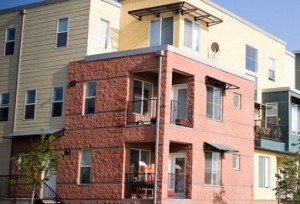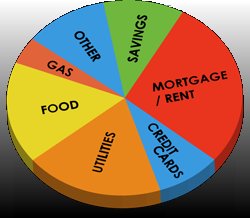How to Calculate the Increase in Cost of Living When You Move
 If you are looking at a tech industry career sooner or later you will consider moving to one of the most expensive metropolitan areas in the United States: Los Angeles, San Francisco, New York, San Jose, etc. The adjustment to the cost of living in these cities for people who come from less expensive areas is often a huge shock. And one reason why that is so is that you ask for too little money when you get your new job.
If you are looking at a tech industry career sooner or later you will consider moving to one of the most expensive metropolitan areas in the United States: Los Angeles, San Francisco, New York, San Jose, etc. The adjustment to the cost of living in these cities for people who come from less expensive areas is often a huge shock. And one reason why that is so is that you ask for too little money when you get your new job.
Living on $100,000 a year in California is nothing like living on that same budget in Texas, Washington, or North Carolina. You may think you’ll be making more money but you could end up having less to spend and save at the end of the month.
Here are a few suggestions on how you can estimate what it will cost you to move to a new city. Of course, you never want to take a lower salary than you are currently making, so moving to a less expensive area at the same income level you have now is always a win.
Start with Gasoline Look at how much money you spend on gasoline each month. Look at your commute to work. You don’t know where you will live for your new job, so it’s a good idea to add 30 minutes to your current commute. Now take your gas budget and divide it between TIME DRIVING TO/FROM WORK and TIME FOR OTHER DRIVING. This isn’t how most people think, so you’ll have to play with the numbers a little bit. But the longer your commute becomes the more of your gas budget that goes to the commute.
By measuring your gas costs in units of time (30 minutes per unit) you can estimate how much more you’ll need to spend on gas for your new job. But look at the average gas prices in your new location, too. If they are lower than where you live now, your estimate is done. If the average price of gas is higher where you will be working, multiply your estimated new gas budget by 1 + the percentage difference in price. Let’s say your area has an average gas price of $2/gallon and the new area has an average price of $3/gallon. You multiply your estimated new gas budget by 1.5.
If you pay about $300 a month for gas now and you estimate that will go up to $400 a month in the new city because of longer commute time, you then multiply the $400 by 1.5 (based on the differences in average gas prices) to come up with a $600/month gas budget. OUCH!
Look at Housing It takes some time to find housing comparable to yours but the Internet makes the task a little simpler. Look at three factors: Price-for-resources, neighborhood crime rates, and the appearance of the neighborhoods on street views.
If you are renting or buying a 3-bedroom home you want to look at neighborhoods in the new city that are comparable to your current neighborhood in terms of available housing, quality of housing, and neighborhood safety and appearance. Of course, you can always think about “trading up” but you need to estimate a base cost for your new housing.
If comparable housing in the new city costs more than where you live now, calculate a multiplier based on percentage difference like you did with the gasoline prices. Let’s say you pay $1000 a month for your current housing needs. If you live outside of California and New York you may be looking at 2-3 times that cost for comparable housing in those states.
Look at Cost of Entertainment Believe it or not, food and movies and other forms of entertainment will cost more or less in different cities based on local costs of living. If you’re moving to a more expensive city then do some research on your favorite restaurant and theater chains to see how much more you’ll have to pay for entertainment. As above, calculate an estimated increase based on the differences in average prices.
Now add 20-25% for taxes Think about this. You’re looking at after-tax costs. So you have to assume that you’ll be paying taxes on the extra money you need to make just to cover the increased cost of living.
Finally, Compute Your Base Cost of Living Combining fuel, housing, and entertainment costs gives you a base cost of living. Other expenses (such as utility bills) may increase in your new home but these are much more difficult to estimate. If you’re looking at an increase of 200-300% in base cost of living you’ll want to ask for at least that much more in compensation than what you are currently earning.
Let’s say your base cost of living is $1800 a month. That works out to $21,600 a year. Doubling that base cost of living means you need to earn at least $21,600 more in take-home pay. But because of taxes you’ll want to earn at least $26,000 more to cover those increased living expenses.
If you are making $100,000 a year now and you’re going to need another $21,600 per year in your new city just to match your current lifestyle then you need to accept no less an offer of $126,000 per year. And these are just rough numbers I am using to illustrate how you do this. Many people are caught by surprise when they relocate to a much more expensive area for a new job. Don’t assume your new employer will make the best offer for you. Negotiate.


